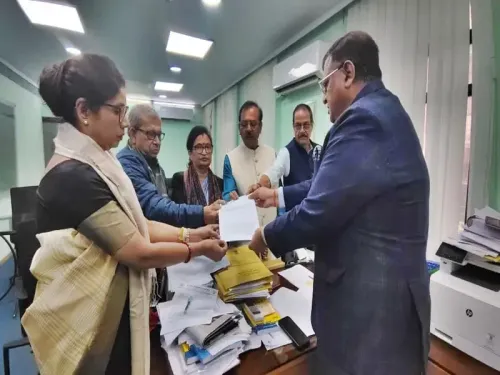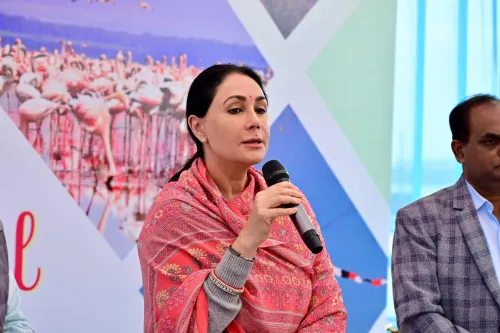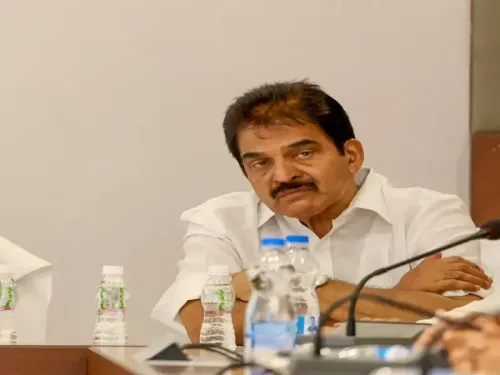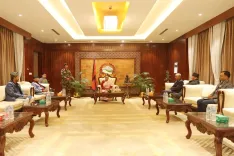Does the Awami League Retain a Strong Support Base in Bangladesh?
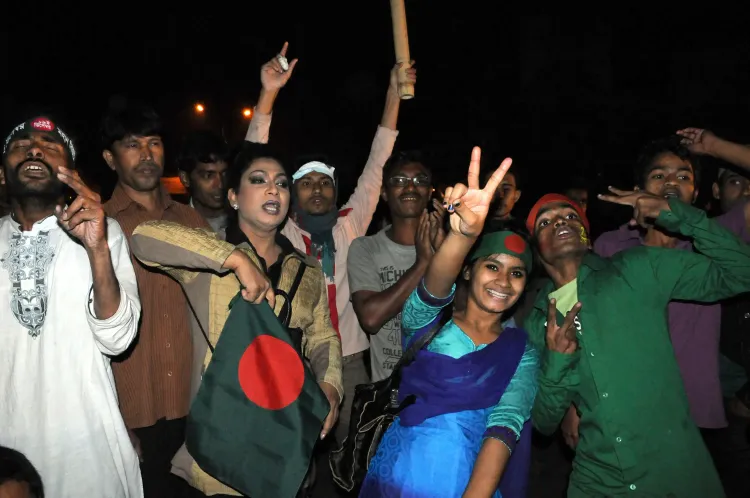
Synopsis
Key Takeaways
- The Awami League retains a significant support base.
- Exclusions of political parties threaten democracy.
- International organizations advocate for political freedoms.
- Calls for unity contrast with growing divisions.
- The Jatiya Party's exclusion raises concerns.
Dhaka, Nov 1 (NationPress) While the interim administration under Muhammad Yunus has minimized the significance of former Prime Minister Sheikh Hasina's appeal to boycott the elections scheduled for February 2026, the robust support for the Awami League paints a contrasting picture, as indicated by a recent report.
The report highlighted that even during its most challenging electoral performance in 2001, where it secured only 62 out of 300 seats, the Awami League garnered over 22 million votes—just about a million votes shy of the Bangladesh Nationalist Party (BNP), which won 193 seats. This underscores the enduring popularity of the Awami League.
In an analysis for the renowned German media outlet Deutsche Welle (DW), prominent journalist and political analyst Masood Kamal noted that a considerable portion of Awami League supporters remain “ideologically and historically committed” to the party, despite the various allegations directed at its leadership.
Kamal further asserted that “banning a political party through an executive order” does not reflect the values of a civilized society.
“The irony is that this government was intended to promote unity. Instead, it has evolved into an instrument of division,” DW quoted Kamal.
The report also emphasized that six international human rights organizations, including CIVICUS, the Committee to Protect Journalists, Fortify Rights, and Human Rights Watch, recently sent a joint letter to Yunus, urging him to revoke the ban on the Awami League, warning that such restrictions could jeopardize democratic rights and political fairness.
The rights organizations appealed to the interim government to “avoid political party bans that could hinder the restoration of a genuine multi-party democracy and effectively disenfranchise a significant portion of the Bangladeshi electorate.”
Notably, the report pointed out that the Jatiya Party is also facing exclusion threats. Following the fall of the Awami League government under Hasina, calls to ban the Jatiya Party have intensified, raising alarms about a wider crackdown on political pluralism.
“Although not officially banned, the Jatiya Party was omitted from the interim government's year-long reform discussions. The National Citizen Party (NCP), formed by some leaders of the 2024 uprising, has made it one of its demands to ban the Jatiya Party,” the DW report elaborated.
Shamim Haider Patwary, the Secretary General of the Jatiya Party, warned that such a mindset poses a significant threat to the country's democratic development.
“Excluding the Jatiya Party from all dialogues sends a strong message to the administration that this party's rights do not warrant protection. This will lead to a manipulated vote. The Jatiya Party is being treated as an 'almost-banned' entity. This is not a favorable indication,” Patwary stated in an interview with DW.


